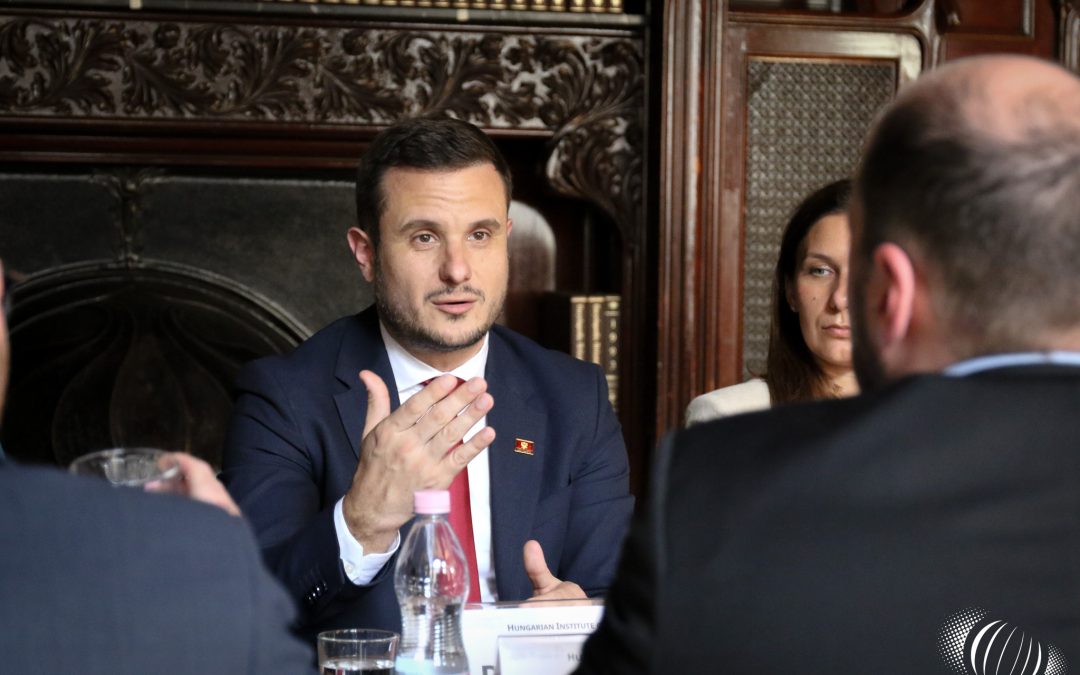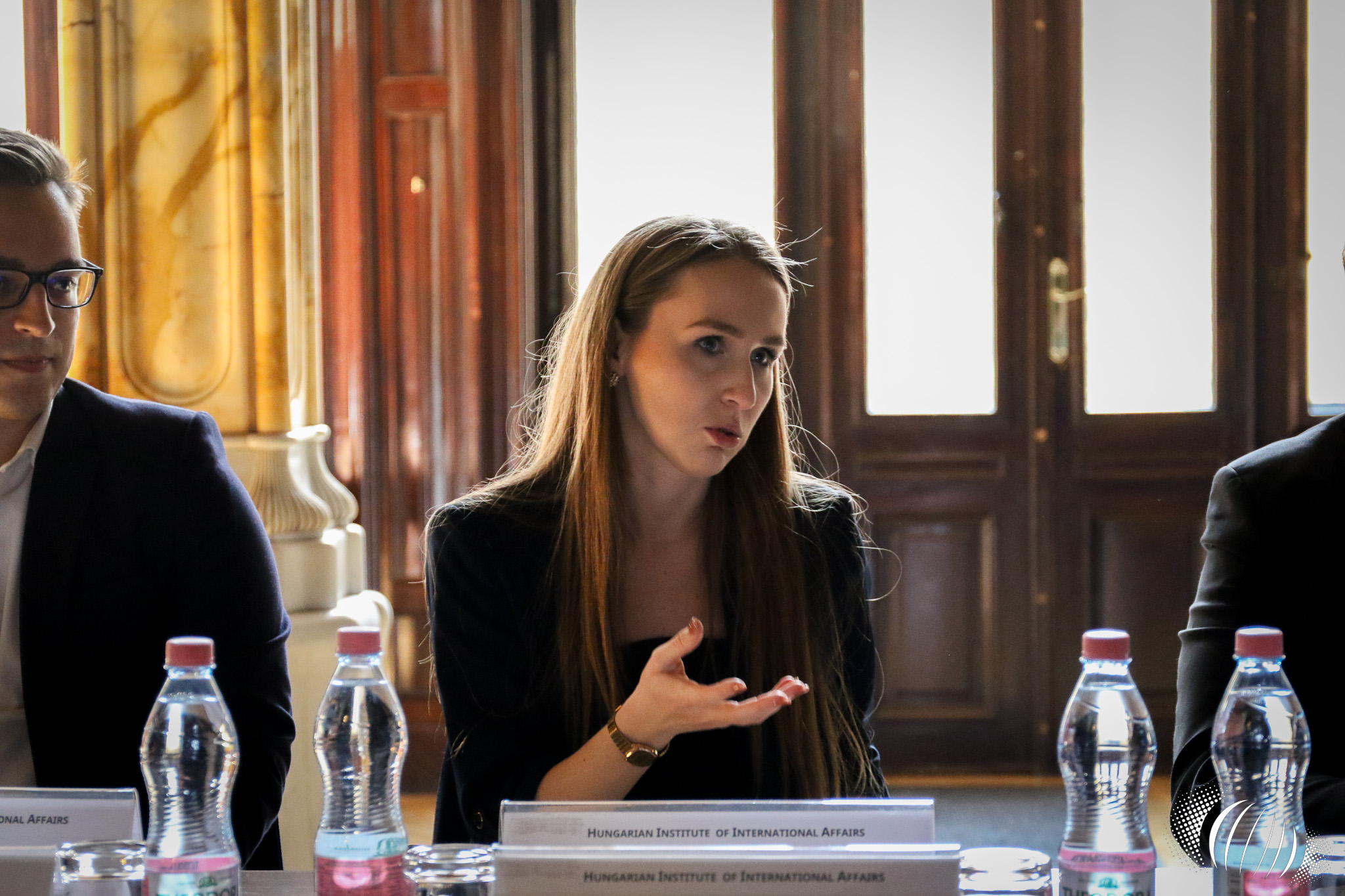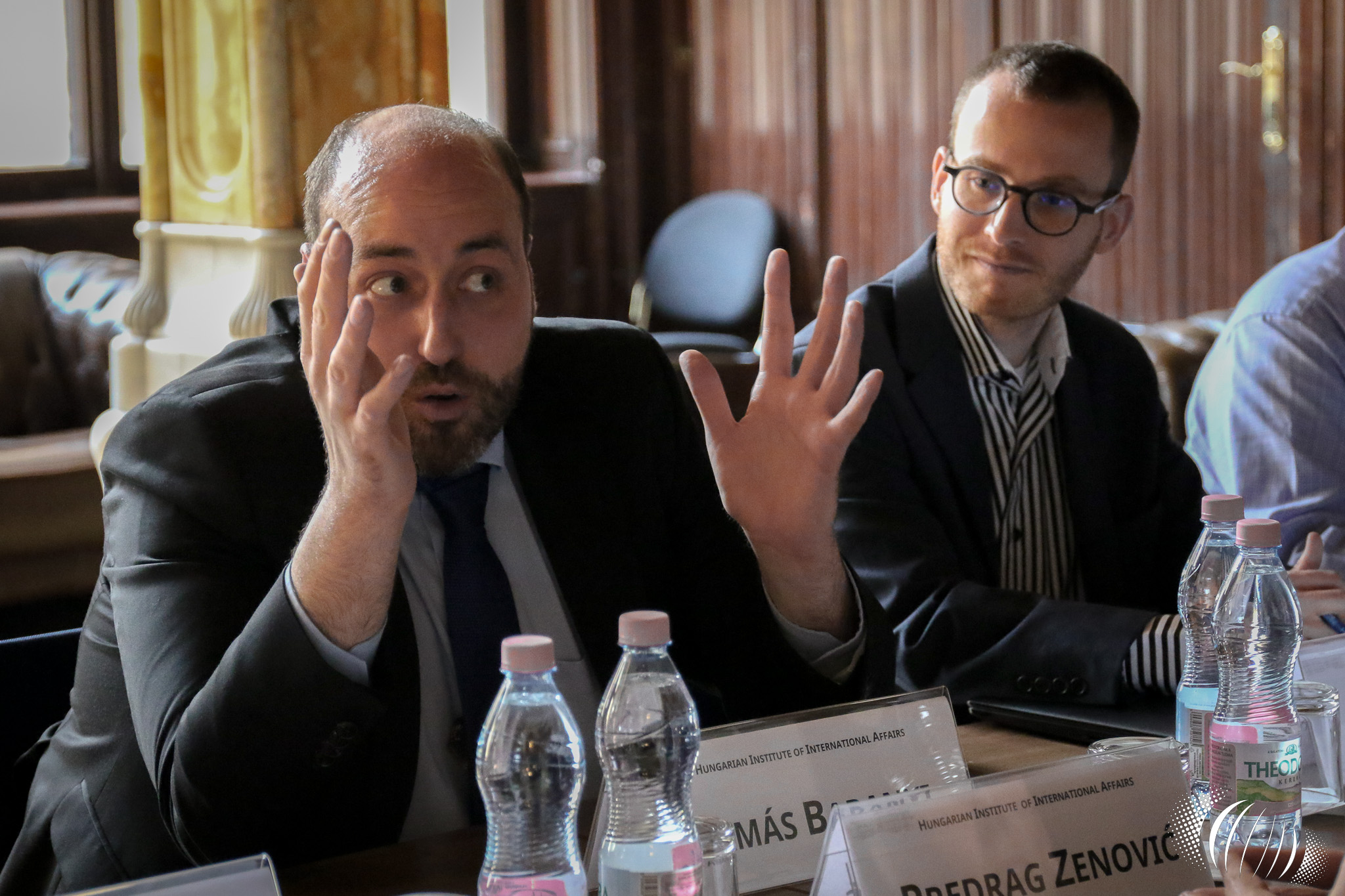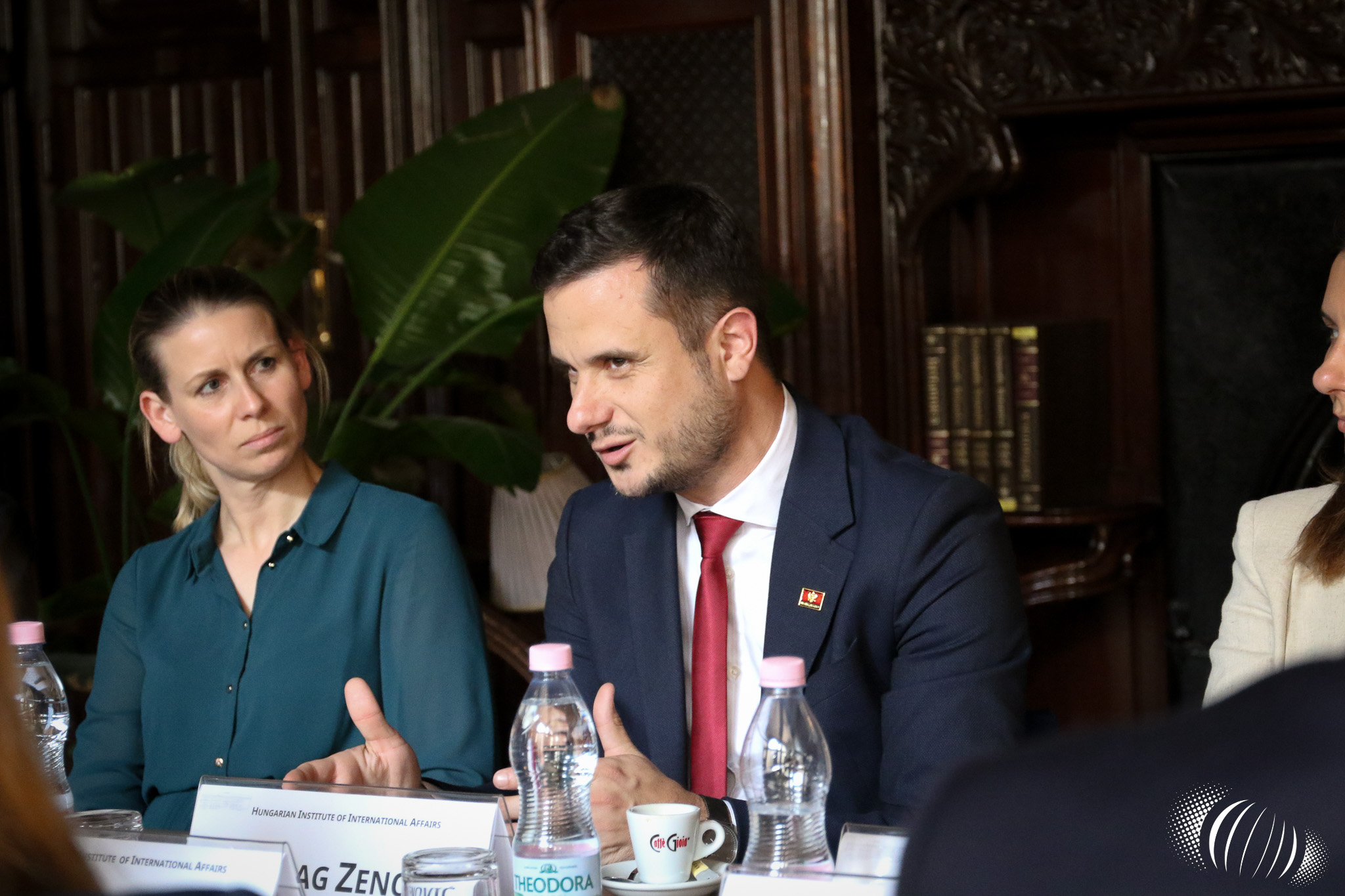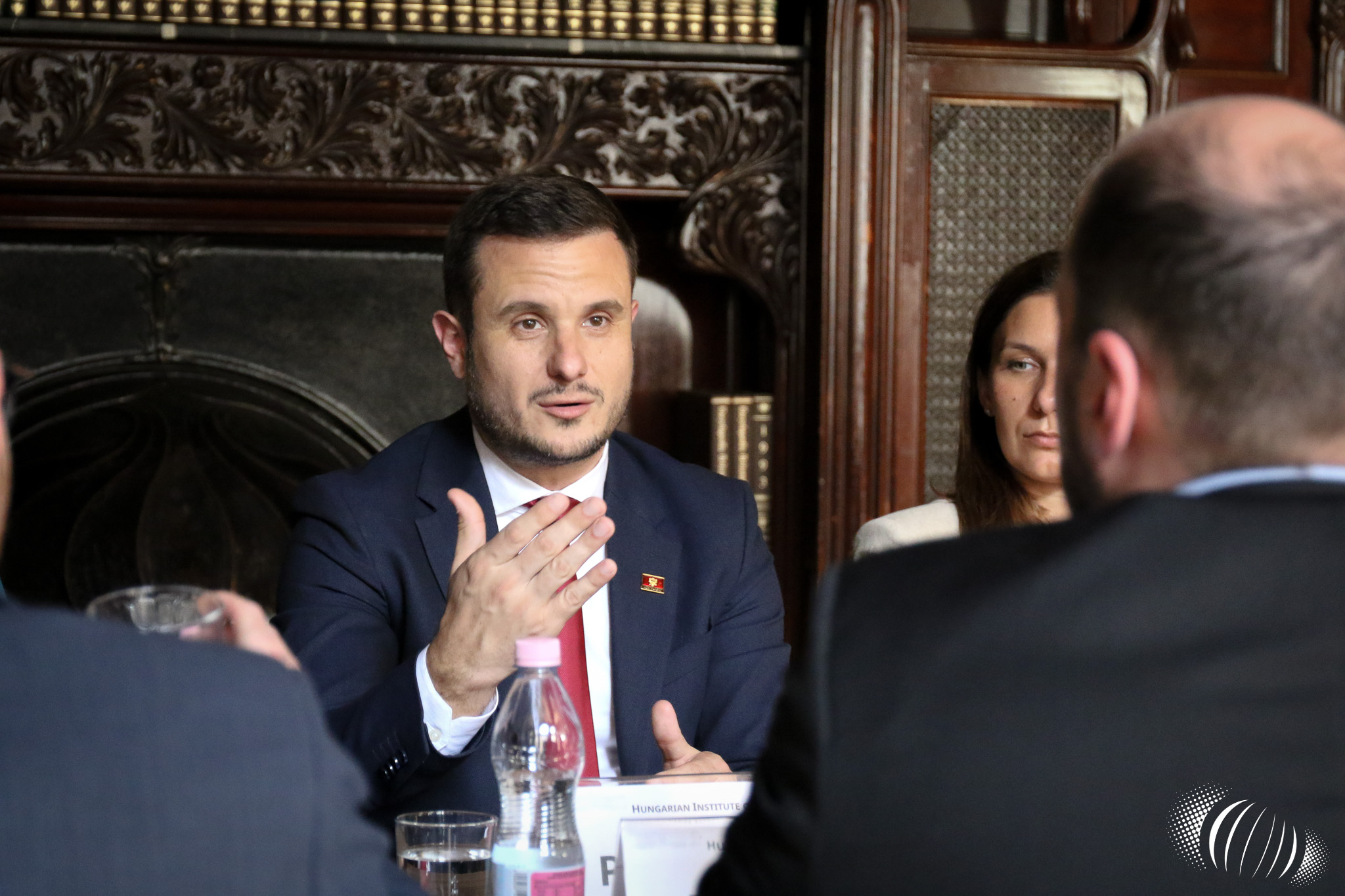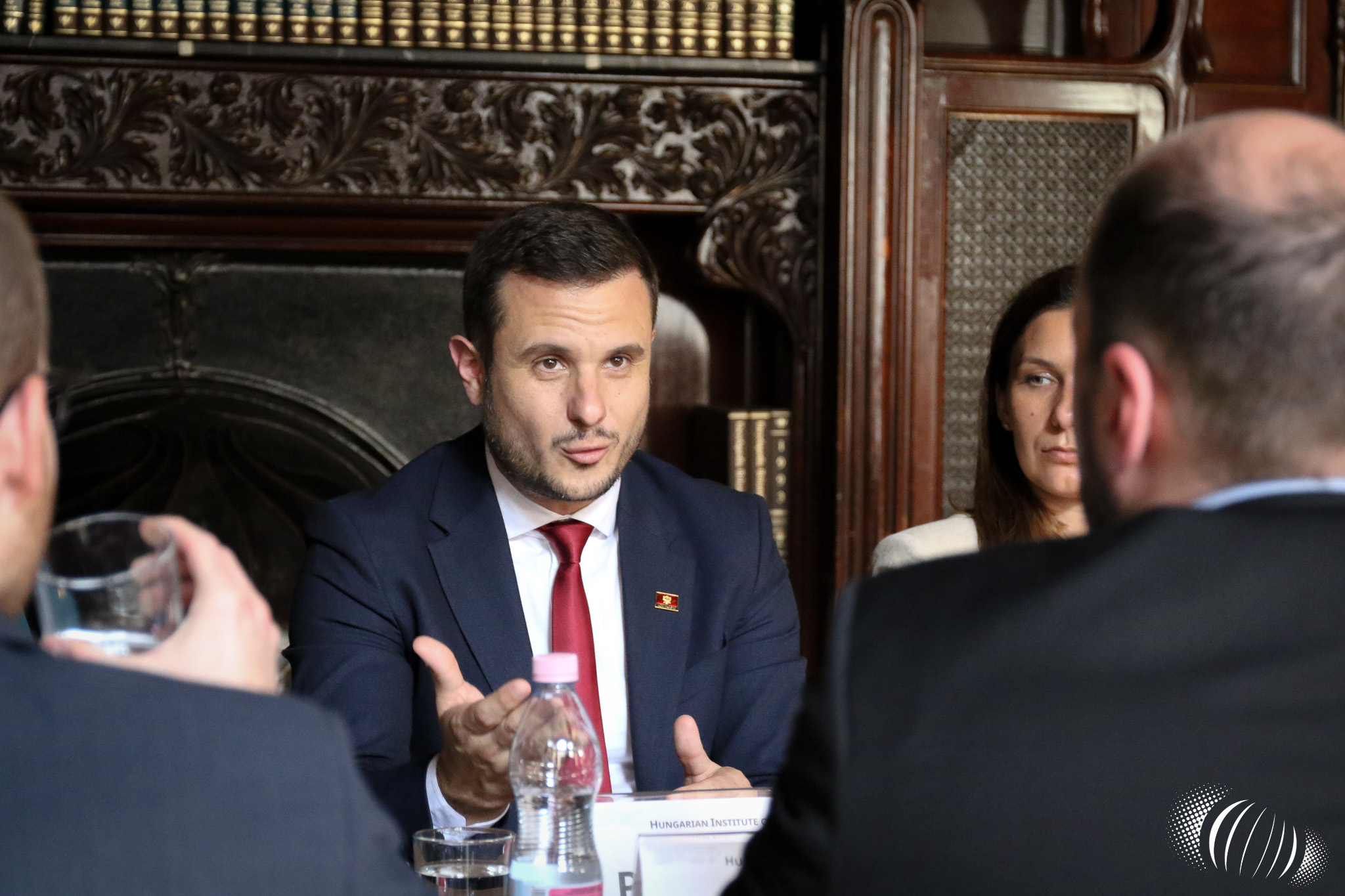Predrag Zenović, Montenegro’s chief negotiator with the EU, at HIIA
On 11 April 2024, the Hungarian Institute of International Affairs (HIIA) welcomed Predrag Zenović, Montenegro’s chief negotiator with the European Union, for a closed-door expert-level roundtable discussion. The meeting was opened by Tamás Péter Baranyi, Director for Strategy of HIIA, followed by a keynote speech by Mr. Zenović on the current situation and challenges of Montenegro’s accession to the European Union as well as the short- and medium-term goals of the new Montenegrin government. The expert discussion covered, among other issues, the possible role of the Hungarian EU Presidency, Montenegro’s position on gradual integration and the impact of the upcoming European and US elections on enlargement policy.

